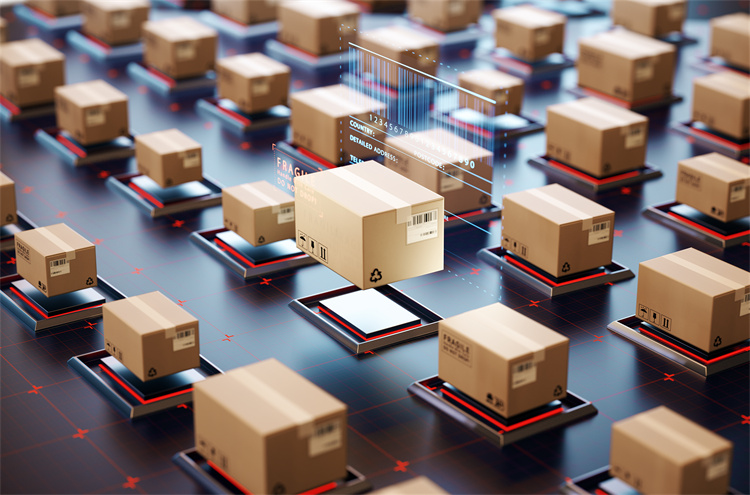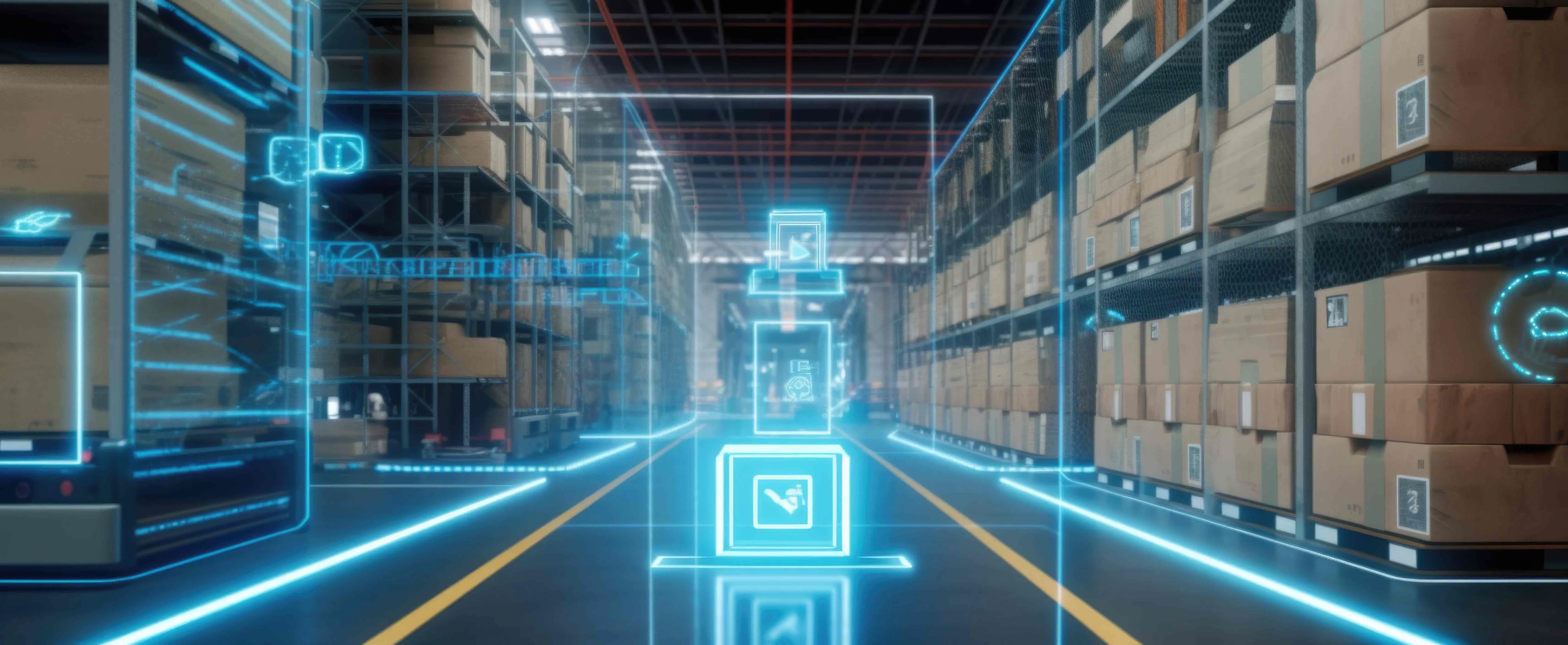The 2025 Guide to Strategic Investments in Logistics

The logistics industry is undergoing a transformation fueled by innovation and global shifts. Technologies like AI, IoT, and blockchain are revolutionizing operations, enhancing efficiency and transparency. With the market projected to grow from $3,794.4 billion in 2023 to $5,951.0 billion by 2030, investing in data-driven solutions is vital for staying competitive.
Key Takeaways
Use smart tools like AI and IoT to make logistics faster and clearer.
Work on eco-friendly plans to cut pollution and attract green-minded buyers.
Team up with others to make supply chains better and stronger.
The Logistics Industry: A Pillar of Global Commerce

Key players shaping the logistics ecosystem
You interact with the logistics industry every day, whether you realize it or not. Major players like FedEx, DHL, and UPS dominate global shipping, ensuring goods reach their destinations efficiently. Companies like JUSDA, with its advanced supply chain management solutions, are transforming the sector by integrating cutting-edge technologies such as IoT and AI. These organizations work alongside smaller regional providers, creating a vast network that keeps the global economy moving. Collaboration between traditional logistics firms and tech-driven startups is also reshaping the industry, introducing innovations like autonomous vehicles and drone deliveries.
The economic significance of logistics in global trade
The logistics industry plays a critical role in global trade and economic growth. It ensures goods flow smoothly from suppliers to consumers, enhancing supply chain efficiency. Efficient logistics infrastructure connects countries, enabling trade and economic integration. The sector creates millions of jobs worldwide, supporting people and their livelihoods. Businesses that invest in logistics gain a competitive edge, delivering products faster and improving customer satisfaction. By reaching wider markets, logistics fosters business growth and stimulates economic activity. It also supports industries by ensuring raw materials and finished products are available when needed.
Current challenges and opportunities in the logistics industry
The logistics industry faces several challenges. Labor shortages, rising costs, and geopolitical tensions disrupt operations. Sustainability goals demand significant changes, with 45% of businesses prioritizing compliance. Manual processes and outdated systems also hinder efficiency. However, these challenges create opportunities for innovation. Technologies like AI-based optimization, blockchain, and robotics can revolutionize operations. Green logistics and last-mile delivery services offer new ways to meet customer demands while reducing environmental impact. By embracing these advancements, you can position your business for long-term success.
Why the Logistics Industry is a Prime Investment Opportunity
Growth trends and market dynamics driving the sector
The logistics industry is experiencing rapid growth, particularly in regions like Asia-Pacific. Economic development and increased manufacturing outputs are driving this expansion. Globalization and the rise of e-commerce have significantly boosted trade volumes, creating a higher demand for international logistics services. Companies are investing in advanced logistics solutions to meet these demands, focusing on operational efficiency and sustainability. This shift highlights the sector's potential for innovation and profitability.
Market dynamics also play a crucial role. The rise of e-commerce has led to strategic partnerships aimed at faster delivery. Strong demand for logistics assets has resulted in historically low vacancy rates and robust rental growth. Even with record-breaking logistics completions, vacancy rates remain below the 10-year average. These trends make the logistics sector a promising area for investment opportunities.
Resilience of logistics during global disruptions
The logistics industry has shown remarkable resilience during global disruptions like pandemics and economic crises. You can see this in how companies diversify supply chains and invest in infrastructure to adapt to changing conditions. Many businesses prioritize sustainability, recognizing its importance for long-term success. Investments in logistics technology, such as AI and big data, enhance operational capabilities. These advancements allow companies to respond quickly to market disruptions, ensuring agility and reliability.
Challenges fostering innovation and investment in technology
The logistics sector faces challenges that drive innovation. A lack of skilled workforce pushes companies to adopt advanced technologies like AI and big data. These tools improve decision-making and operational efficiency. Financial challenges, such as a significant drop in startup funding, highlight the need for sustainable investment strategies. The growing emphasis on green logistics solutions encourages businesses to explore renewable energy and eco-friendly practices.
Rapid market changes and evolving customer demands require agility in supply chain management. Companies must adapt quickly to remain competitive. By addressing these challenges, you can unlock new opportunities for growth and innovation in the logistics industry.
Strategic Areas for Investment in Logistics

Advanced technologies transforming logistics operations
Advanced technologies are reshaping the logistics industry, offering innovative solutions to improve efficiency and reduce costs. Artificial intelligence (AI) plays a pivotal role by predicting disruptions and optimizing routes. AI-driven forecasting ensures optimal inventory levels, minimizing overstocking and stockouts. Self-driving vehicles further enhance operations by reducing human errors and enabling continuous deliveries. These vehicles analyze traffic patterns in real time, ensuring faster and more efficient deliveries. Additionally, blockchain technology improves supply chain transparency and security, fostering trust among stakeholders. By adopting these technologies, you can streamline operations and gain a competitive edge in the logistics sector.
Workforce development and upskilling for future readiness
Investing in workforce development is crucial for addressing the evolving demands of the logistics industry. Formal training programs help workers acquire essential skills, while digital literacy and interpersonal communication training prepare them for modern roles. Virtual Reality (VR) and Augmented Reality (AR) offer immersive training experiences, enhancing learning outcomes. Collaborating with educational institutions creates a skilled talent pool through internships and co-op programs. Clear career progression paths motivate employees to upskill, ensuring your workforce remains adaptable to industry changes. A diverse and technologically skilled workforce drives innovation and strengthens your organization’s resilience.
Sustainability and green logistics initiatives
Sustainability is a growing priority in logistics. Green logistics initiatives, such as adopting renewable energy sources and sustainable packaging, reduce environmental impact. Electric and autonomous vehicles lower emissions, while local fulfillment centers decrease transportation distances. Reverse logistics promotes recycling and extends product lifecycles. These practices not only reduce your ecological footprint but also improve efficiency and attract environmentally conscious customers. By prioritizing sustainability, you align with global trends and enhance your company’s reputation.
Infrastructure and supply chain optimization with JUSDA ESG
Optimizing infrastructure and supply chain management is essential for long-term success. JUSDA ESG offers comprehensive logistics solutions, integrating advanced technologies like IoT and big data. Its Supply Chain Management Collaboration Platform enhances transparency and efficiency through real-time tracking and predictive analytics. JUSDA’s global network ensures seamless operations across regions, reducing costs and improving service delivery. By leveraging JUSDA ESG, you can achieve operational excellence and meet the demands of a dynamic market.
The Future of Logistics Investments
Emerging trends shaping the logistics industry by 2025
The logistics industry is evolving rapidly, with several trends expected to redefine its future. By 2025, you will see automation and artificial intelligence transforming operations, enabling faster and more accurate decision-making. Sustainability will take center stage as companies adopt green logistics practices to reduce their environmental impact. The rise of e-commerce will drive omnichannel logistics, ensuring seamless integration across platforms. Supply chain resilience will become a priority, with businesses focusing on risk management to handle disruptions effectively. Blockchain technology will enhance transparency, fostering trust among stakeholders. Robotics will revolutionize warehousing, improving efficiency and reducing costs. Data-driven decision-making will empower you to optimize operations and predict market trends. Hyper-personalized customer experiences will also emerge, tailoring services to individual needs. Balancing globalization with regionalization will create opportunities for businesses to adapt to local markets. Enhanced collaboration across the supply chain will further streamline operations and foster innovation.
The role of adaptability in navigating market changes
Adaptability plays a crucial role in helping you navigate the ever-changing logistics landscape. Flexible supply chain management ensures resilience, allowing you to recover quickly from disruptions. Optimized processes reduce operational costs, improving overall efficiency. By responding swiftly to market changes, you can maintain uninterrupted service delivery, enhancing customer satisfaction. As Hiram Hartnett, EVP of Sales at Pegasus Logistics, aptly states, “Adaptability is going to be king. If people aren’t forward-thinking and open to innovation, they’ll struggle to meet the challenges of the future.” Embracing adaptability ensures your business remains competitive in a dynamic market.
Collaboration between major players like JUSDA and startups
Collaboration between established companies and startups drives innovation in the logistics industry. Partnerships promote open-mindedness, encouraging creative solutions to complex challenges. By leveraging technology, you can enhance adaptability and streamline operations. Digital tools provide valuable data, enabling better resource utilization and decision-making. Collaborative efforts also support the shift to outcome-based models, creating flexible logistics systems that adapt to market demands. Companies like JUSDA exemplify this approach by integrating advanced technologies and fostering partnerships to optimize the global supply chain. These collaborations ensure the industry remains agile and prepared for future challenges.

JUSDA Solutions
To provide you with professional solutions and quotations.
Strategic investments in logistics ensure your business stays competitive in a dynamic market. The sector’s adaptability and technological advancements offer diverse opportunities for high returns.
Focus on supply chain agility to reduce risks from disruptions.
Use IoT for better visibility across operations.
Collaborate with partners to create efficient supply chains.
Proactively invest in automation, sustainability, and resilience. These steps prepare you to meet future challenges and seize emerging opportunities.
See Also
Best Logistics Programs You Should Know About in 2024
Comprehensive Insights on Eco-Friendly Transport in Supply Chains
Key Supply Chain Strategies for Manufacturing Success in 2024
Mastering Lean Logistics for Success in High-Tech Manufacturing
